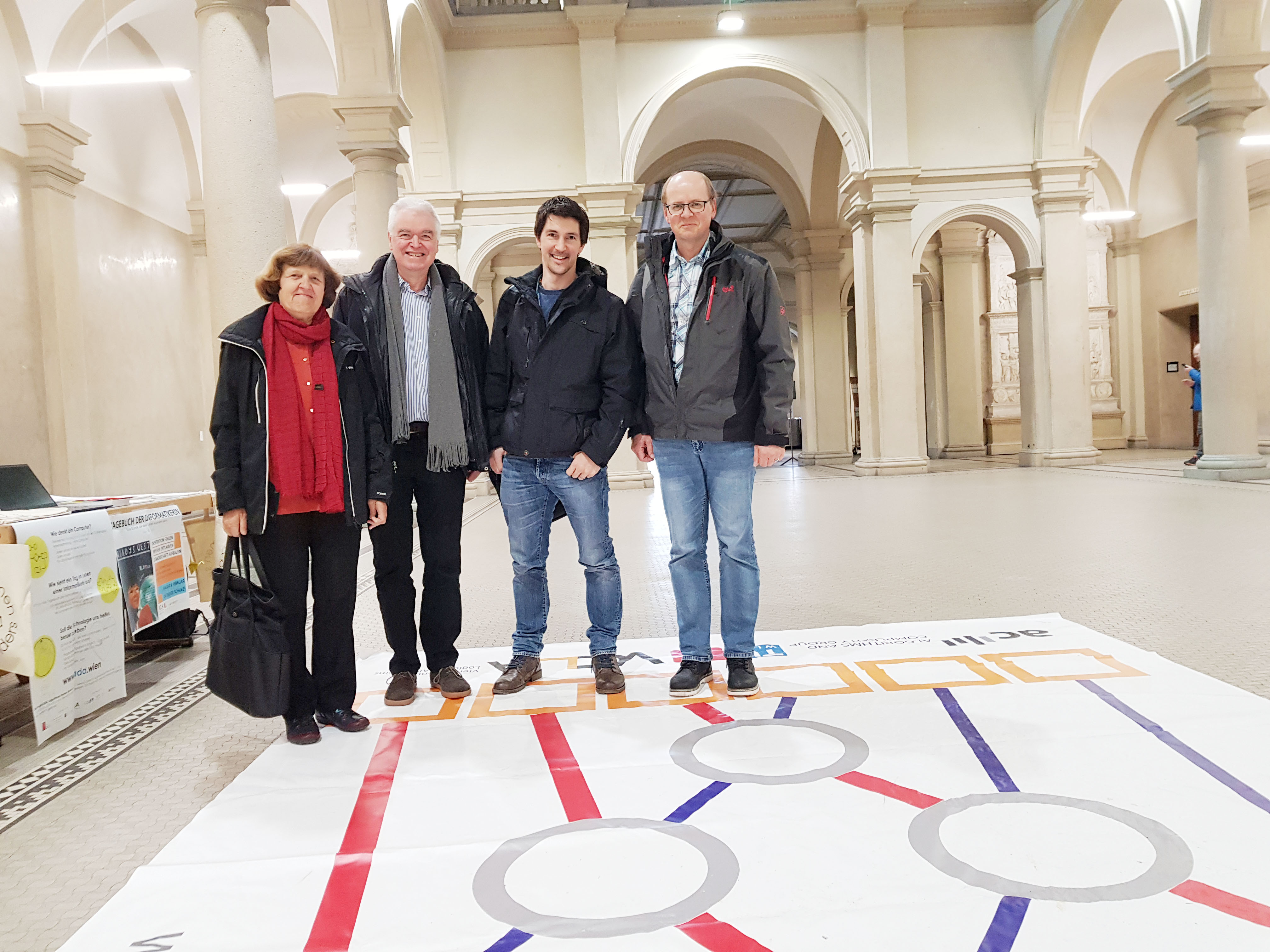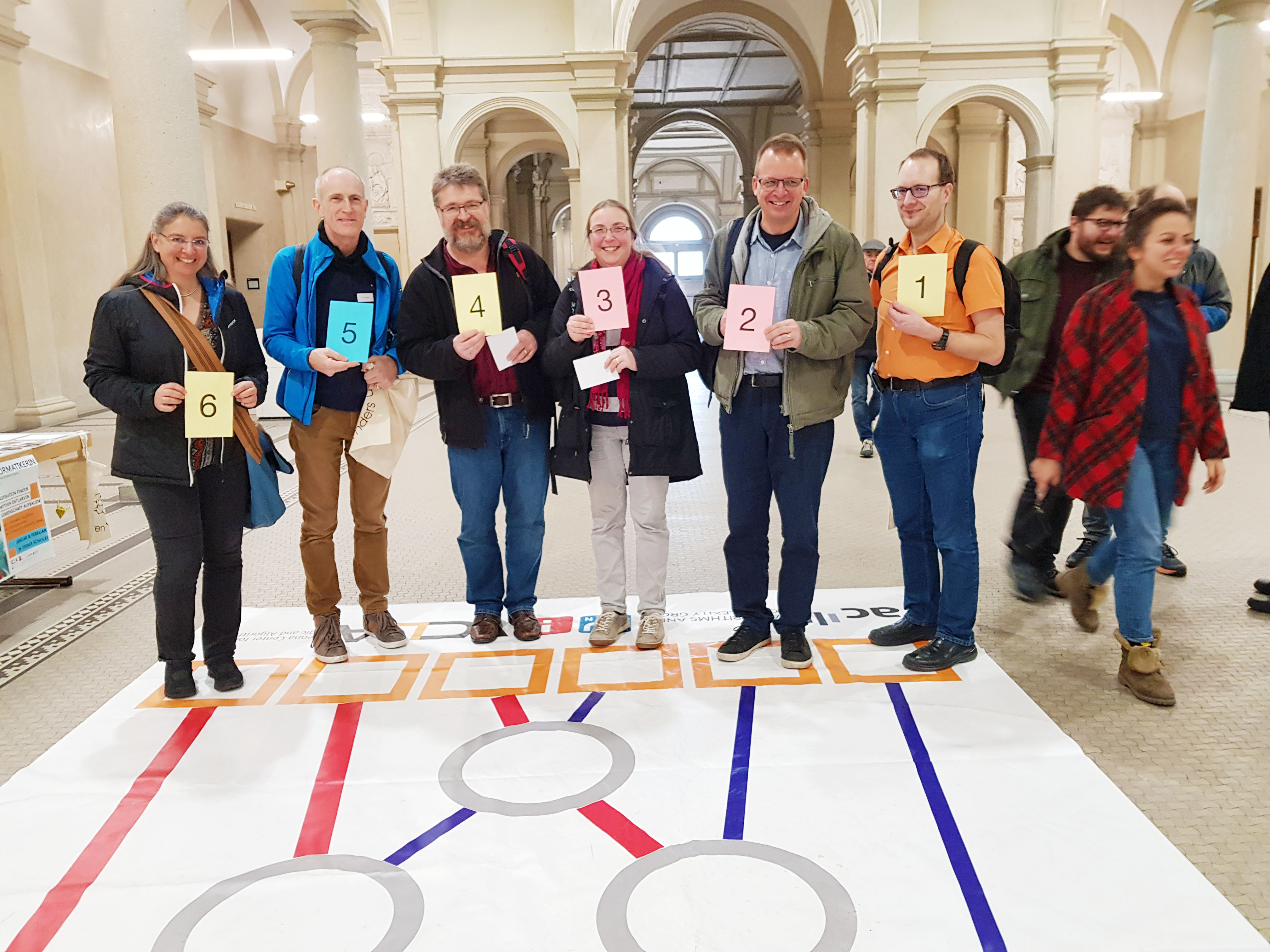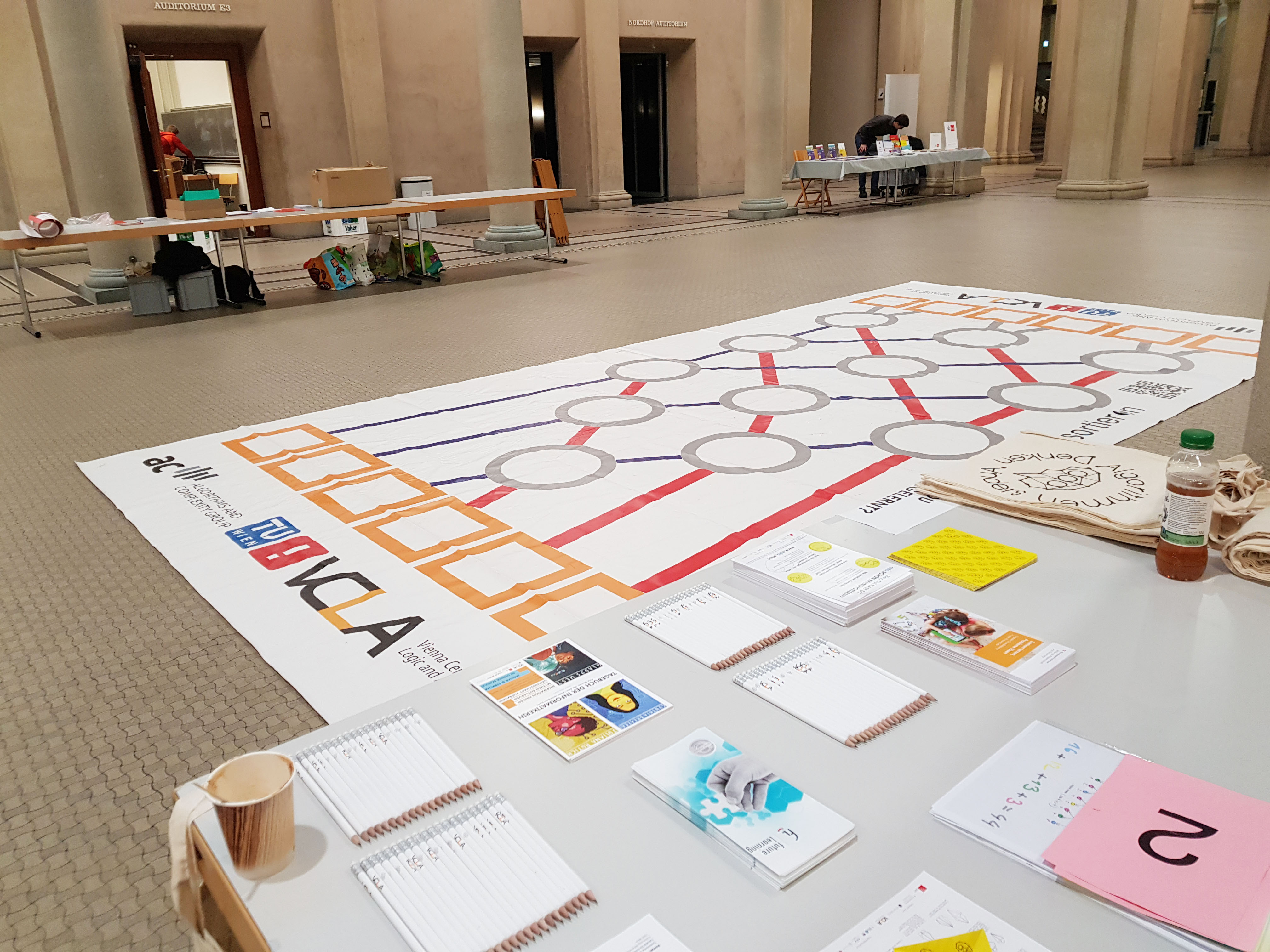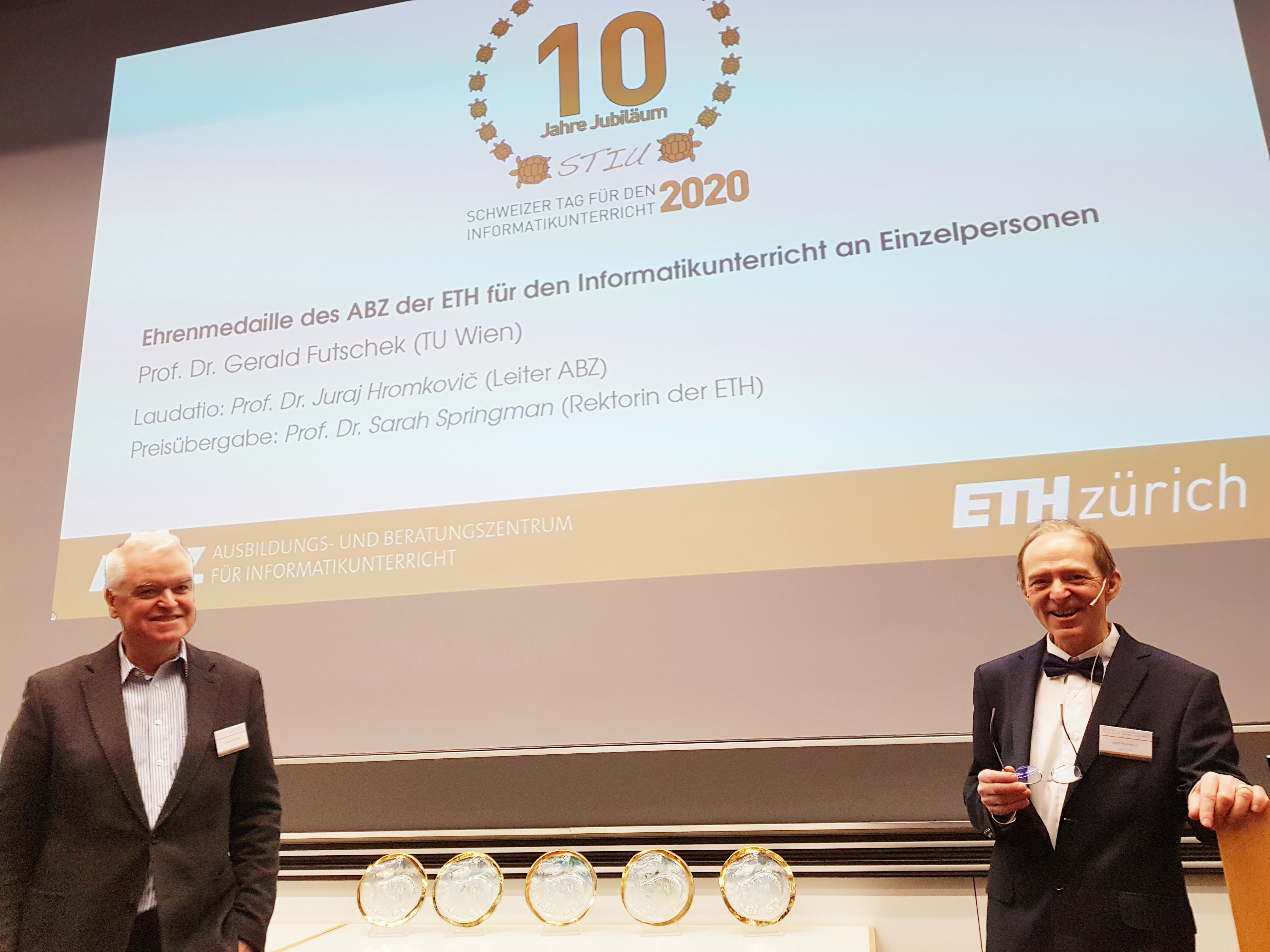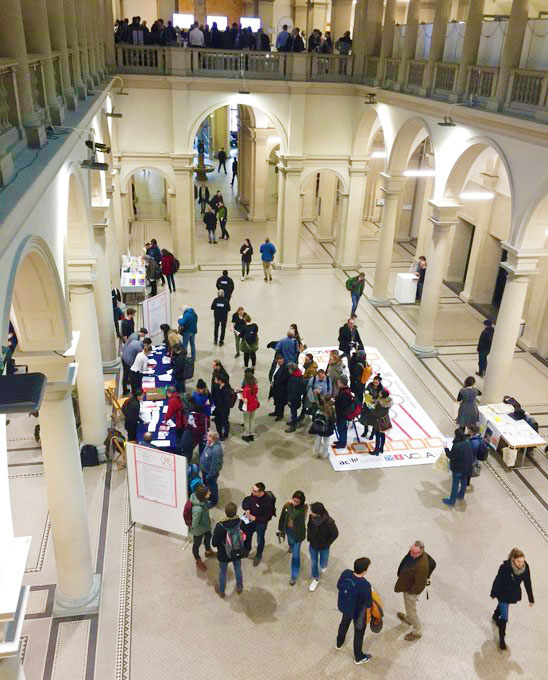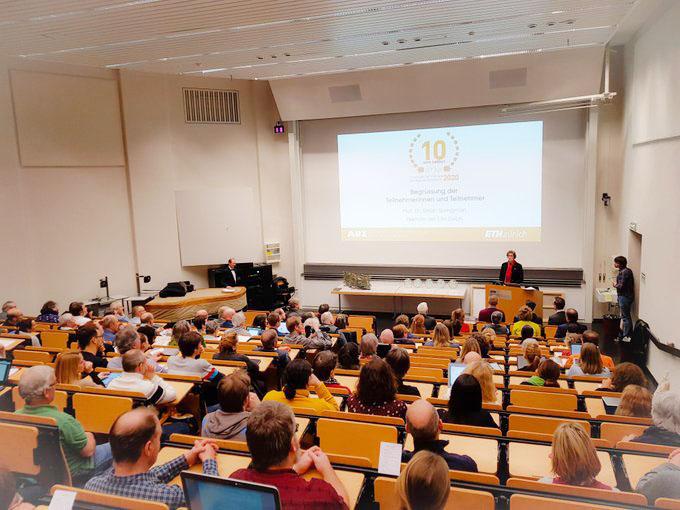10th Swiss Day of Teaching Computer Science at ETH Zürich
| DATE: | Wednesday, February 5, 2020 – Wednesday, February 5, 2020 |
| VENUE: | ETH Zürich |
When pupils develop computational skills they can articulate a problem and think logically. It helps them to break down the issues at hand and predict what may happen in the future. Furthermore, it is helping them to explore cause and effect and analyze how their actions or the actions of others impact the given situation. It is a method that teaches students to think as if they are computers, and it is a strategy not just for computer science classrooms!
The 10th Swiss Day for Computer Science Education (STIU) which took place on February 5, 2020, at ETH Zurich, offered a range of workshops for teaching computer science, on a premise that computational thinking and creativity are the skills to be fostered in the classrooms of today – with and without computers. At the STIU the participating teachers from Switzerland and Austria, have had the opportunity to gain an insight into the teaching materials that have not yet been published, and the 17 workshops offered something for teachers of all levels, from kindergarten to grammar school.
The event offered 5 workshops dedicated to the Computer Science Beaver Competition (Biber der Informatik), initiated by Valentina Dagienė, which is a breathtaking global success story and is also becoming increasingly popular in Switzerland. The Biber der Informatik has been already widely popularized in Austria by the Austrian Computer Society (Österreichische Computer Gesellschaft – OCG) and has in 2019 again reached record participation of 37.600 pupils. The Austrian leadership in the organization of the competition was acknowledged with an Honorary medal of the ABZ of ETH Zurich for teaching computer science to individuals to Prof. Gerald Futschek, TU Wien.
Fostering computational thinking without using a computer has been the scope of many activities developed at our Faculty of Informatics. At the ETH Zürich, the Vienna Center for Logic and Algorithms put in the spotlight two major projects of our faculty: interactive exhibition and workshops as part of Abenteuer Informatik, and the German edition of the renowned CS Unplugged collection of materials for teaching computer sciences with pen-and-pencil as well as hand-on activities. An eye-catcher seemed to be a sorting network with 6 entry nodes, designed by Prof. Stefan Szeider, based on CS Unplugged. It was a reminder in a mini format of the world’s largest sorting network successfully performed by pupils in September 2019, as part of project ADA – Algorithmen Denken Anders. Due to the project ADA, and funding by the Vienna Business Agency and BMVIT, in March 2020, the German-speaking audience will receive the fully translated book available under Creative Commons for a free copy, share, and modification of the material.
